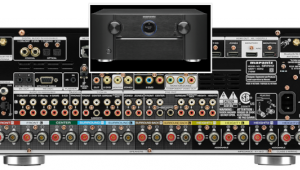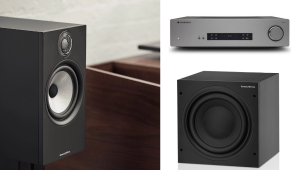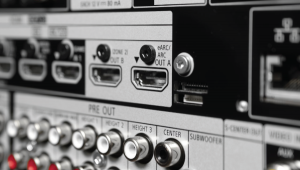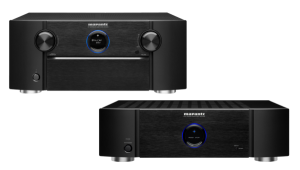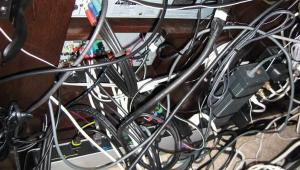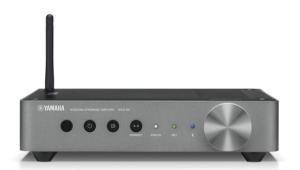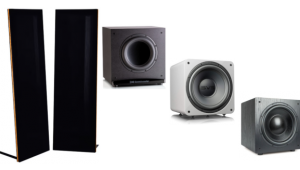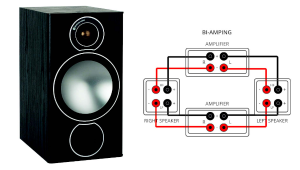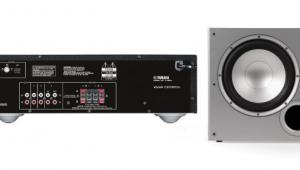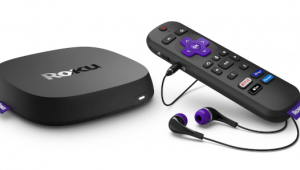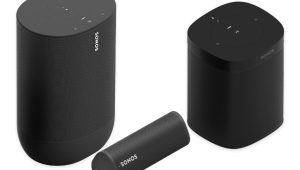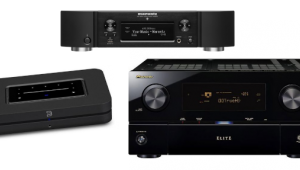In-Wall HDMI, Screen Size, Sub Pops

Is it worth the effort to install HDMI cables "in-wall" given that they update the version so frequently? How long do you expect HDMI 1.4 to last ?
Patrick Liu
HDMI versions may change relatively often, but cable specs don't, despite how cable manufacturers label their products. As long as the cable is Simplay-certified to convey 10.2Gbps (the maximum data rate for HDMI 1.3 and 1.4), it will work with any current or previous HDMI products. And since HDMI 1.4 can accommodate 3D, lossless audio, and even 4K x 2K resolution, I seriously doubt that the maximum data rate will have to be increased any time soon. Thus, I would not worry about HDMI evolution when embedding a 10.2Gbps cable in the wall.
However, cable length is another issue that I would be concerned about. Even high-quality HDMI cables should not be longer than 20 or 30 feet, and in-wall cables could easily reach beyond that. For that reason, I would install CAT5/6 or optical fiber in the wall and use devices called baluns at both ends to convert HDMI to the appropriate type of cable. CAT5/6 and optical fiber have much higher bandwidth than HDMI cable, and they can be much longer, so even if the HDMI data rate increases in the future, the embedded cable is ready for it.
Bigger Than You Think
My couch is about 9 feet from the TV. I watch a lot of sports, TV shows, and some Blu-ray movies, and I do some gaming. What size Samsung LED LCD TV would you go with? Is the 46-inch too small for that size room? Is the 55-inch way too big? Or would you go with a Panasonic plasma?
Justin Lasoff
People generally underestimate the screen size they need and regret getting a TV that's ultimately too small. In your case, 46 inches is way too small, and even 55 inches is smaller than recommended by THX or SMPTE. For a seating distance of 9 feet, THX recommends a screen size of 80.5 inches (diagonal), while the minimum SMPTE recommendation is 66.4 inches (diagonal). Of the two sizes you specify, I'd definitely go for the 55-incher.
As for LED LCD or plasma, that depends on several factors. Do you watch mostly with a lot of ambient light (say, during the day without good light control or with the room lights on so people can do other things)? If so, an LED LCD is probably better because it's generally brighter than plasma. Also, many LCD TVs have a matte screen, which helps reduce reflections, but Samsung's LCDs have pretty shiny screens, so this isn't an advantage with them.
If you can minimize ambient light in the room, I prefer the look of plasma, a recommendation that is strengthened if people will be watching from far off center. Also, plasmas do not suffer from motion blur nearly as much as LCDs, which is important for sports and other fast-action content. Of course, 120Hz and 240Hz LCDs with frame interpolation reduce motion blur considerably, but this gives rise to the "soap-opera effect," which makes movie content look like it was shot on video like a soap opera, and many viewers strenuously object to this.
Stop the Pops
I recently installed a new Onkyo HT-S3300 HTIB system along with a new DirecTV HR24/100 HD DVR. When I use the 30-second skip or fast forward on the DVR, I hear a low-pitch popping sound from the subwoofer. It usually happens right before the main sound comes back on. If I hit skip multiple times, the popping continues to happen every couple of seconds until the show resumes. I am using HDMI from the DVR to the receiver. I don't notice the problem when fast forwarding through DVD movies. I called Onkyo about it, and they said it's because the DVR isn't fully muting the sounds when fast forwarding. Does this sound like a reasonable explanation? Do you know of any solution?
Tom Blankenship
Since you don't hear the popping when fast forwarding through DVD movies, I tend to agree with Onkyo that the DVR is at fault, though I don't know if the reason they give is accurate. I would contact DirecTV and see if they've heard of this problem and, more importantly, ask if they have a solution. Perhaps the DVR is malfunctioning, in which case they should swap it out for a different one. I'm afraid I don't know of any other solution; perhaps some of our readers have encountered this problem and found a way to deal with it.
If you have a home-theater question, please send it to scott.wilkinson@sorc.com.
